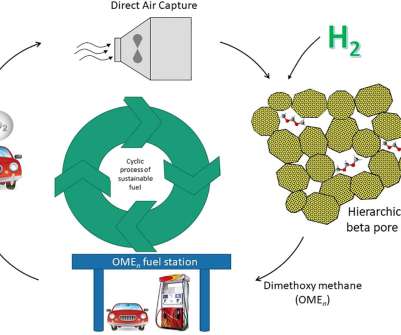DHL, Shell and Grundfos Bio-LNG pilot for road freight delivers 85% CO2 savings over conventional diesel
Green Car Congress
NOVEMBER 17, 2021
This corresponds to the emissions of more than 89,900 km driven by a diesel truck and represents 85% of CO2 savings compared to a traditional diesel engine. By investing not only in sustainable fuel but also in fleet renewal, engine retrofitting, and efficiency projects, we tackle the impact of the logistics supply chain.












Let's personalize your content